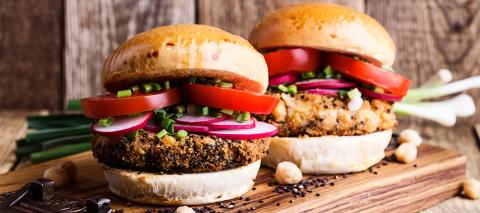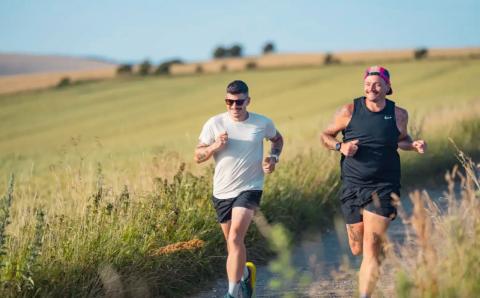
Half Marathon Training Diet: Fueling Your Body for Success
Published on November 9 by Matt
Training for a half marathon is a serious commitment that requires not only dedication and perseverance but also a solid nutrition plan to support your physical efforts. What you eat plays a crucial role in your performance, recovery, and overall ability to complete your training program successfully. The right diet helps improve endurance, maintain energy levels, and prevent injuries.
In this article, we’ll explore what you should be eating before, during, and after your half marathon training to fuel your body and optimize your results.
Why Nutrition Matters for Half Marathon Training
Running a half marathon (13.1 miles) places a significant demand on your body. Your muscles need to repair after long runs, your energy stores must be replenished, and you need to stay hydrated to prevent fatigue and cramping. The food you eat can directly impact:
- Energy levels: Carbohydrates provide the energy your muscles need to perform.
- Endurance: Proper fueling helps delay fatigue and maintain consistent performance throughout your runs.
- Recovery: Protein aids in muscle repair after long runs, while healthy fats support overall energy balance.
- Hydration: Staying hydrated prevents dehydration, cramps, and heat exhaustion.
Macronutrient Breakdown
A balanced diet for half marathon training should consist of three main macronutrients: carbohydrates, proteins, and fats. Each plays a vital role in supporting your training.
1. Carbohydrates: Your Primary Fuel Source
Carbs are the main energy source for endurance athletes, and they become even more important during long runs. Your body stores carbohydrates in the form of glycogen in muscles and the liver, which provides quick energy during exercise.
- How Much? Aim for about 45-65% of your total daily calories from carbohydrates, with an increase in carb intake as your long runs and mileage increase.
- Best Sources: Whole grains (brown rice, quinoa, oats), fruits (bananas, apples, berries), vegetables (sweet potatoes, leafy greens), and legumes (beans, lentils).

Pre-Run Carb Loading
In the 2-3 days leading up to your longest run or race day, you can "carb-load" by increasing your carbohydrate intake to boost glycogen stores. This helps delay fatigue during the race.
2. Proteins: Muscle Repair and Recovery
Protein is essential for repairing and rebuilding muscle tissue after your training runs. During half marathon training, muscle breakdown occurs, and protein helps in muscle recovery.
- How Much? Aim for 10-20% of your total daily calories from protein. This might be higher on long run days or after strength training.
- Best Sources: Lean meats (chicken, turkey), fish (salmon, tuna), plant-based options (tofu, tempeh, legumes), dairy (Greek yogurt, cottage cheese), and eggs.
Post-Run Recovery
After your runs, especially long ones, aim to consume a recovery meal with a 3:1 or 4:1 ratio of carbs to protein within 30-60 minutes to replenish glycogen stores and kickstart muscle repair.
3. Fats: Long-Term Energy Source
Healthy fats are essential for overall health, and they provide a slow-release energy source for long-distance running, especially as glycogen stores begin to deplete during extended training runs.
- How Much? About 20-35% of your daily calories should come from fats.
- Best Sources: Avocados, nuts and seeds (almonds, chia seeds), olive oil, fatty fish (salmon, sardines), and nut butters.
Hydration: Stay Hydrated to Perform at Your Best
Hydration is a key component of your training diet. Dehydration can lead to fatigue, cramps, and poor performance. Proper hydration should be prioritized both before and during your training runs.
1. Pre-Run Hydration
Drink water throughout the day, but aim to drink around 16-20 ounces of water 1-2 hours before your run to ensure adequate hydration levels.
2. During the Run
For runs longer than an hour, consider carrying water or using water stations along your route. In addition to water, you may want to consume sports drinks that contain electrolytes (sodium, potassium) to replace the salt lost through sweat.
3. Post-Run Hydration
Rehydrate with water or a recovery drink to replace lost fluids. Aim for around 16-24 ounces of fluid for every pound lost during your run.
Timing Your Meals: When to Eat for Optimal Performance
The timing of your meals is just as important as what you eat. Here’s a breakdown of how to time your meals around your training sessions.
1. Before Your Run
The pre-run meal should be focused on easy-to-digest carbohydrates with a small amount of protein. Ideally, eat 1-2 hours before your run. A good pre-run snack could include:
- A banana with peanut butter
- A small bowl of oatmeal with fruit
- Whole grain toast with almond butter
- A smoothie with yogurt, fruit, and some oats
Avoid high-fat or high-fiber foods immediately before a run, as they can cause digestive discomfort.

2. During Your Run
For runs longer than 60 minutes, you'll need to refuel with carbs during the run. Choose easy-to-carry, digestible options like:
- Energy gels or chews
- Sports drinks with electrolytes
- Dried fruit (raisins, dates)
- Bananas or other easily digestible fruit
Consume 30-60 grams of carbs per hour during long runs to maintain your energy levels.
3. After Your Run
Post-run nutrition is critical for recovery. Within 30-60 minutes after finishing your run, focus on replenishing glycogen stores with carbohydrates and repairing muscles with protein. A good recovery meal could include:
- A smoothie with protein powder, fruit, and spinach
- A turkey sandwich on whole-grain bread
- A quinoa salad with chickpeas and vegetables
- A bowl of rice with grilled chicken and avocado
Supplements for Runners: Do You Need Them?
While a balanced diet should cover most of your nutritional needs, some runners may benefit from certain supplements, especially if they have dietary restrictions or are training at higher intensities. Common supplements include:
- Electrolyte Tablets: Help replace sodium, potassium, and magnesium lost through sweat during long runs.
- Protein Powder: Useful for muscle recovery if you struggle to meet protein needs through food alone.
- Vitamin D: Especially important in the winter months or for those with limited sun exposure.
- Iron: Some runners, particularly women, may be at risk for iron deficiency, which can lead to fatigue.
Before taking any supplements, it’s a good idea to consult a healthcare professional or a sports nutritionist.
Sample Half Marathon Training Diet Plan
Breakfast (Pre-Run)
- Oatmeal with banana, chia seeds, and almond butter
- A glass of water or an electrolyte drink
Snack (During Run)
- Energy gel or a handful of raisins
Lunch (Post-Run Recovery)
- Grilled chicken salad with quinoa, mixed veggies, and olive oil dressing
- A glass of water or a recovery drink
Afternoon Snack
- Greek yogurt with berries and a sprinkle of granola
Dinner
- Baked salmon with roasted sweet potatoes and steamed broccoli
- A glass of water or herbal tea
Evening Snack (if needed)
- A small handful of almonds or a slice of whole-grain toast with peanut butter
Conclusion
A well-balanced diet is one of the key factors to successfully training for a half marathon. By fueling your body with the right mix of carbohydrates, protein, and fats, staying properly hydrated, and timing your meals around your runs, you’ll be setting yourself up for success. Remember that nutrition is a journey, not a one-size-fits-all approach. Adjust your diet based on your personal needs, preferences, and how your body responds to your training. With the right nutrition, you’ll be ready to cross that finish line with energy to spare!